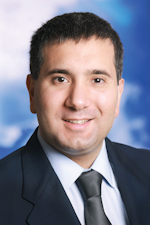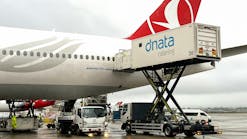Eastern European Growth Benefits GHSPs
Eastern Europe is a very important region of the world for the aviation industry, as it is characterized by particularly positive growth figures as well dynamism. Aircraft ground handling indeed benefits from this positive status quo.
Overall the market is sustainable and healthy in terms of growth and competition between ground handlers.
“Segments of the Estonian market in Tallinn International Airport (TLL) – baggage and ramp handling – are still monopolistic, though it should be opened in 2021. The number of flights is growing significantly in Lithuania, Latvia and Estonia and it is directly related to inbound and outbound tourism,” says Kristijonas Bakutis, business development manager at Baltic Ground Services. “At Vilnius International Airport, for example, passenger growth was around 50 percent in 2017-2018 and number of flights grew 30 percent.”
Industry Growth
With such growth, ground handlers are increasingly facing challenges to provide faster service.
“To meet these challenges, we are constantly improving our processes by using ‘lean management,’ employing digital and virtual reality (VR) solutions that allow to train new personnel and update knowledge of existing employees in a much faster and cost-effective way. In turn, we have a very high punctuality rate (over 99.5 percent) and effective costs. Of course, pricing is crucial, as all ground handlers, operating in the EU must comply with the same standards,” says Bakutis.
The increased demand for ground handling services in Eastern European countries to some extent clashes with the lowest unemployment figures in the whole of the EU.
“This creates a constant pressure to accommodate labor cost rise,” notes Jiri Jarkovsky, chairman of the board of directors at Czech Airlines Handling, a ground handling provider at Václav Havel Airport Prague with more than 90 years of experience in the business. “In order to maintain the staff turnover at an acceptable level, we are constrained to continuously focus on the personnel issue, crucial for the delivery of our services to all customers in the expected quality.”
Ground Handling Infrastructure
According to Bakutis the aircraft ground handling market in Eastern Europe at the current moment faces a set of main issues – most notably a lack of manpower, increasing costs and infrastructural issues.
“We have to employ different approaches, that allows us attracting new and retaining our existing employees, cutting costs and increasing quality of service,” he says.
Passenger numbers in Prague have been growing year-on-year since 2013.
In 2018, as per the latest operating results, Prague Airport handled approximately 17 million passengers, which represents a 9 percent year-on-year growth. In 2019, the airport expects to handle more than 17.5 million passengers, which will represent another important milestone.
In total, the airport facilitated more than 155,000 take-offs and landings in 2018, representing a 5 percent growth compared to the previous year. On an average, in 2018, 46,000 passengers passed through the airport each day.
The airport infrastructure undergoes continuous development, focusing on both – short-term and long-term projects. In particular, there is going to be a new fuel farm depot opened this year, alongside the reconstruction of gates and stands at Terminal 1.
These developments are also followed by works on the check-in capacity increase in both terminals, including the installation of automated drop-off counters in the future.
In a long-term perspective, the final decision on how to proceed with the construction of a parallel runway and expansions to Terminal 2 will be made later this year.
The airport authority expects that the implementation of this development phase plan will allow Prague Airport to handle up to 21 million passengers annually.
“At the moment, there are three main providers of ground handling services at Prague Airport, which seems for us to be the maximum number supported by the existing infrastructure,” says Jarkovsky.
Czech Airlines Handling is one of those ground handling providers at Václav Havel Airport Prague and is a part of the Prague Airport Group. Even as a subsidiary of the airport operator, the company has separate management as well as its own strategy and focus.
“To ensure fair competition on the market, no exceptions, preferences and benefits are provided to us. The conditions applied by Prague Airport are the same for all ground handling providers,” explains Jarkovsky.
The collaborations between ground handlers are based on business relationships, according to Bakutis.
“For example, in Vilnius International Airport, we have two ground handling suppliers and de-icing service is shared between them, if required. Or we have back-up contracts when ground handlers support for an agreed fee with each other if one of them is unable to handle aircraft with its own equipment,” he says.
Bakutis believes that the Polish aircraft ground handling market is very peculiar.
“Poland is becoming more and more conservative and local companies are getting way more support than foreign companies. Despite that, Baltic Ground Services is growing in the Polish market successfully and numbers are increasing by 15 percent each year,” he points out.
Regulatory Environment
At the moment, there are not particularly noteworthy regulations that are imposed on the aircraft ground handling industry by Eastern European countries. All passenger, cargo and general aviation operations are performed with no special regulations imposed at Prague Airport, which has airport collaborative decision making (A-CDM) in place.
“However, we have been noticing a recent trend of tighter restrictions applied to night-time operations due to noise abatement measures,” says Jarkovsky.
With regard to the regulatory landscape, Bakutis points out that the Baltic countries are not particularly restrictive.
“People from outside the EU can easily be employed with a permanent permission to work inside airports,” he says. “Baltic Ground Services is employing new staff from Africa and Asia.”





